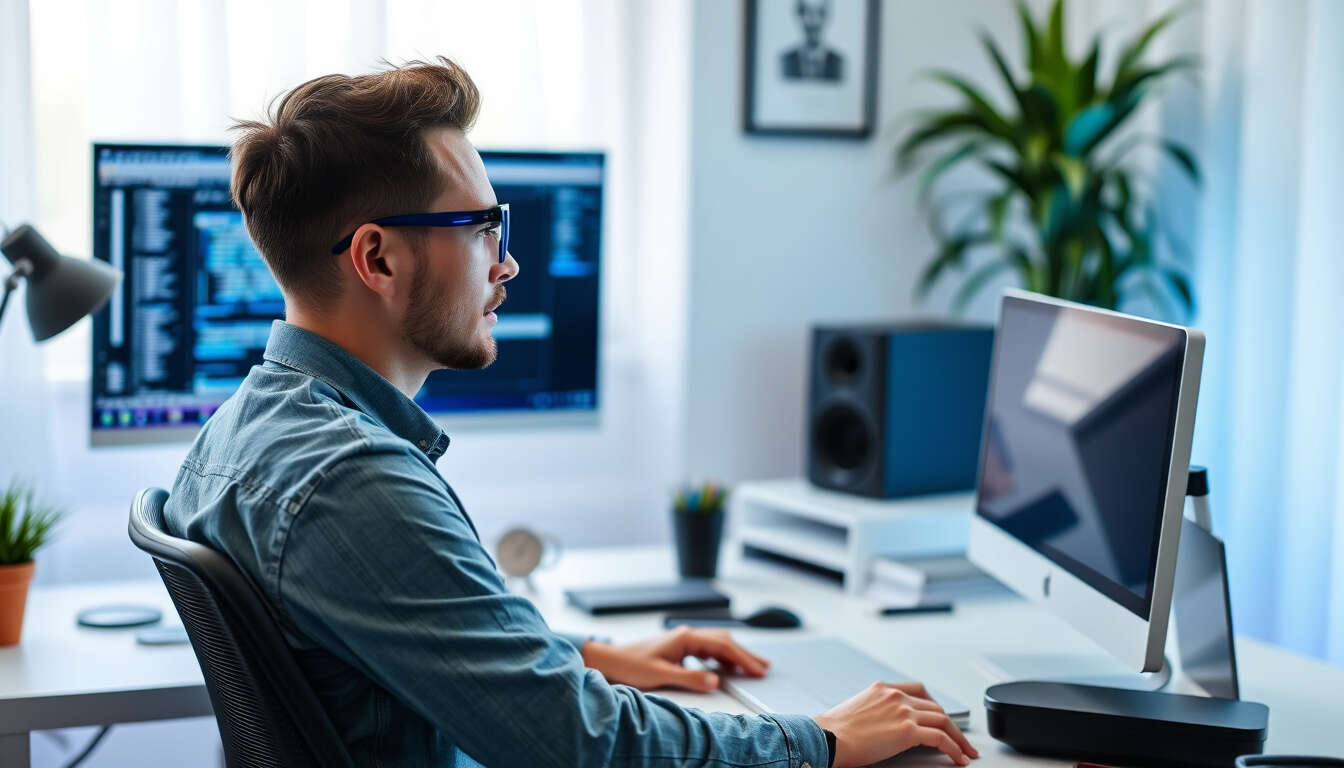The Healthy Developer: Safeguarding Against Blue Light
 by Verner Mayer
by Verner Mayer
Software developers often face eye strain and sleep disruptions from prolonged screen exposure. This article explores blue light protection strategies, alongside stress management and work-life balance, to promote overall well-being and prevent burnout.

Software developers dedicate long hours to screens, which can lead to various health challenges. One key concern is blue light emitted from devices, affecting both physical and mental health. Addressing this involves simple yet effective strategies to maintain eye health and improve sleep quality.
First, consider the impact of blue light on daily routines. Blue light, a high-energy visible light from screens, can suppress melatonin production, making it harder to fall asleep. Studies from the American Academy of Sleep Medicine indicate that evening exposure disrupts sleep patterns, leading to fatigue and reduced cognitive function. For developers working late, this creates a cycle of exhaustion that affects productivity and mood.
To counter this, incorporating blue light protection into your routine is essential. Options include using filters on devices or wearing glasses that block blue light. For instance, a developer might notice improved sleep after switching to these tools, allowing for better focus during work hours. Alongside this, maintaining good posture and ergonomics helps reduce overall strain. Simple adjustments, like positioning screens at eye level, can prevent neck pain and eye fatigue.
Mental health is equally important. Stress from tight deadlines can build up, potentially leading to burnout. Techniques such as mindfulness exercises or short breaks can make a difference. A real-life example involves a developer who implemented daily walks to clear their mind, reporting lower stress levels and enhanced creativity.
Work-life balance plays a crucial role in sustaining health. Setting boundaries, like designating screen-free evenings, supports relaxation and family time. Nutrition and exercise also contribute; a balanced diet rich in antioxidants supports eye health, while regular physical activity boosts endorphins to combat stress.
Sleep hygiene extends beyond blue light. Creating a consistent bedtime routine, such as reading or light stretching, promotes restful nights. Psychological effects of remote work, like isolation, can worsen these issues. Connecting with peers through virtual meetups fosters a sense of community and reduces loneliness.
In practice, one developer shared how adopting blue light protection transformed their routine. They combined it with exercise, like morning runs, to start the day energized. This holistic approach not only prevented physical ailments but also improved mental resilience.
Ultimately, prioritizing health ensures a sustainable career. By focusing on blue light protection, stress management, and balanced living, developers can thrive professionally while enjoying better well-being.
